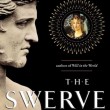Should Catholic Schools Be Allowed to Discriminate?
by Trent Horn
Filed under Religion

Should Catholics be allowed to discriminate? The short answer: Of course they should. Now, let me define what I mean by “discriminate.” In one sense, to discriminate means to note a difference between two things. When a Catholic school doesn’t hire an incompetent applicant, they discriminate between that applicant and a more qualified one (just as your taste buds discriminate between chocolate and sulfur). However, when most people think of discrimination, they think of unfair discrimination,... Read More
Coming to Our Senses: The Moral Sense of Scripture

NOTE: Over the past several months, we've had lots of combox discussion about how Catholics read and interpret the Bible. To help us all make sense of this question, we began a multi-part series on the topic. Once a week, for the next several weeks, Mark Shea will unpack how Catholics authentically read the Bible. He began with a general introduction, then he outlined three specific guidelines. Last week he launched into the three main spiritual senses (or lenses) through which Catholics... Read More
Catholics, Atheists, and Reasonable Dialogue: Interview with Trent Horn (video)
by Brandon Vogt
Filed under Interviews

Trent Horn is a young apologist and speaker for Catholic Answers, and a popular contributor here at Strange Notions. Over the last several years, he's travelled across the country, engaging in debates and discussions regarding atheism and pro-life issues. He specializes in helping people have intelligent and genuine dialogue about these contentious topics. Trent holds a masters degree in theology from Franciscan University of Steubenville and just released his first book, Answering Atheism:... Read More
Violence is Contrary to God’s Nature: Common Ground for Catholics and Atheists
by Dr. Matthew Ramage
Filed under Christianity and Violence, The Bible

Today I’d like to consider an issue on which many atheists and Catholics may—perhaps to their surprise—find a point of common ground. “Violence is incompatible with the nature of God.” This line is not from an atheist but rather from Pope Benedict XVI. The context in which he penned it was his famous (in some circles infamous) Regensburg Address from 2006. In this particular case, he was endeavoring to foster a dialogue with Islam over a theology which “might even lead to... Read More
Coming to our Senses: The Allegorical Sense

NOTE: Over the past several months, we've had lots of combox discussion about how Catholics read and interpret the Bible. To help us all make sense of this question, we began a multi-part series on the topic. Once a week, for the next several weeks, Mark Shea will unpack how Catholics authentically read the Bible. He began with a general introduction, then he outlined three specific guidelines. Today he'll begin covering the three main spiritual senses (or lenses) through which Catholics... Read More
Will We Have Free Will in Heaven?
by Jimmy Akin
Filed under The Problem of Evil

Will we have free will in heaven? If so, does that mean we might sin and fall again? If not, what kind of free will would we have there? And if God can harmonize our free will and sinlessness in heaven, why doesn't he do so in this life? Here are some thoughts . . . A Robot "Loves" Me. Big Deal. NOTE: This is part of a series on the problem of evil. Click here to read the previous posts in the series. In a previous post, we looked at a common answer to the problem of evil--that God... Read More
The Crusades: Urban Legends and Truth
by Douglas Beaumont
Filed under Crusades

Although many college students today are ignorant concerning the Holocaust from only a generation ago, many seem to think they know enough about the Crusades to use them as an argument for the evil of religion. Like the tired refrain that religion is “anti-science” even though only one example is usually offered (and it is mistaken), the Crusades are often “the” example listed for the equally wearisome complaint that religion causes more wars than any other factor (a laughable... Read More
Tools for Thinking Sensibly about Scripture

NOTE: Over the past several months, we've had lots of combox discussion about how Catholics read and interpret the Bible. To help us all make sense of this question, we began a multi-part series on the topic. Once a week, for the next several weeks, Mark Shea will unpack how Catholics authentically read the Bible. Last week he offered a general introduction, today he outlines three specific guidelines, and next week he'll begin covering the three main spiritual senses (or lenses) through... Read More
StrangeNotions Update and Feedback
by Brandon Vogt
Filed under News

Update on Strange Notions It's been an amazing seven months here at StrangeNotions.com. Since launching on May 6, thousands of contributors, readers, and commenters have joined to make this project a huge success. In fact, as far as I can tell, it's become the largest dialogue between Catholics and atheists in the last two thousand years. In just seven months we've garnered: 257,000 unique visitors 468,000 visits 926,000 pageviews 39,000 comments 195 posts Before I say anything... Read More
Beating a Catholic Straw-Man: A Review of “The Swerve”
by Bishop Robert Barron
Filed under Book Reviews, History

In 2005, Harvard scholar Stephen Greenblatt published a wonderful book on Shakespeare called Will in the World: How Shakespeare Became Shakespeare. Witty, insightful and surprising, it caused thousands of people, including your humble scribe, to look at the Bard with new eyes. Thus it was with great anticipation that I opened my copy of Greenblatt’s latest The Swerve: How the World Became Modern. Like its forebear, this new book is indeed lively, intelligent and fun to read, but as I... Read More






